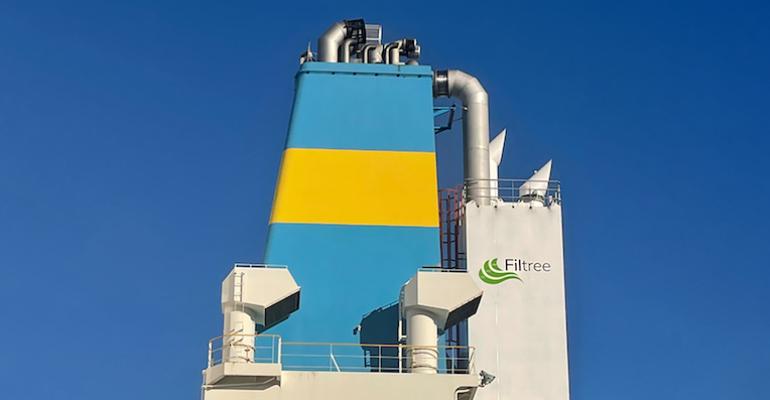Speaking to journalists in Athens on 24 October after Intercargo’s six monthly meeting and AGM, Fafalios called for regulation that targets more than shipowners and consistency in rules that apply at a national and international level.
“At the moment, everyone is thinking you can decarbonise by regulating shipowners alone but this is not the case. We all want to decarbonise but it is a collaborative effort,” he said stressing that shipyards also need to be regulated. “We are faced with regulations that are not unified and this needs to be addressed. Shipping has proven that it is adaptive. If the technology is there, we will adopt it,” he said.
The choices faced by investors are numerous, while carbon capture looks to be gaining the edge for bulk carriers.
“Carbon capture is very promising. In the next five years we will see very different systems that are a lot more applicable to bulk carriers. I think that we will have a lot of developments here, a number of which will be tested here in Greece. Carbon capture will be a significant factor when it comes to [managing] the existing fleet,” said Fafalios.
The dry bulk owners’ association has seen its member base grow in recent years as shipowners see synergies are required to get through upcoming operational and environmental challenges. Intercargo currently has 159 full members and around 90 associate members as the numbers grow.
“We are very privileged to have a lot of Greek members who are very dynamic and contribute to debates. We have 50% more ships with the association than what we had back in 2019,” said Fafalios. Indeed, 96 full members come from Greece.
The number of registered ships is up about a third to around 3,300 as a change in membership terms under which full members are now registering their entire fleets with the association.
With more than 300 million dwt of ships registered, twice the tonnage it had four years ago, Intercargo claims to represent a third of the global dry bulk fleet.
“There is strength in union,” Intercargo’s technical committee vice chairman Dimitris Monioudis commented, while the association's vice chairman, Spyros Tarassis, added: “Synergies are needed now to go forward.”
Decarbonisation is the most pressing challenge with many Intercargo members finding themselves swamped in a “sea of regulations”, in Fafalios’ words.
Intercargo reiterated on Tuesday its backing of the International Maritime Organization’s revised decarbonisation goals.
Fafalios estimated that operational measures will very likely allow the industry to meet, or even exceed, short-term emission cut targets by 2030. “We’re going to have a lot of developments… you’ll be surprised,” he said.
Copyright © 2024. All rights reserved. Seatrade, a trading name of Informa Markets (UK) Limited.
Add Seatrade Maritime News to your Google News feed.  |

